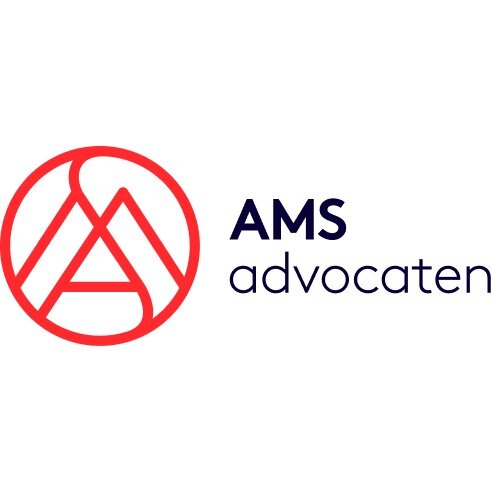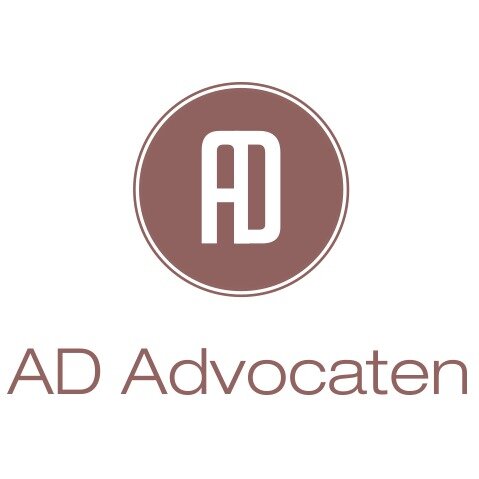Best Art & Cultural Property Law Lawyers in Amsterdam
Share your needs with us, get contacted by law firms.
Free. Takes 2 min.
List of the best lawyers in Amsterdam, Netherlands
About Art & Cultural Property Law in Amsterdam, Netherlands
Art & Cultural Property Law in Amsterdam, Netherlands, encompasses a wide array of legal principles pertaining to the creation, ownership, and transfer of artworks and cultural heritage. Amsterdam, rich in culture and arts, is home to many museums, galleries, and historic sites, making it a focal point for legal issues in this field. The legal framework here covers intellectual property rights, provenance, export and import controls, restitution claims, and the protection of cultural heritage, aligning with both national and international standards. The city is committed to preserving its rich cultural heritage while fostering a thriving art market.
Why You May Need a Lawyer
There are several scenarios in which individuals or organizations might seek legal assistance regarding Art & Cultural Property Law. Common situations include:
- Acquisition or sale of artworks where due diligence is required to verify provenance and authenticity.
- Restitution claims for artworks looted or unlawfully appropriated during historical events, such as World War II.
- Legal advice regarding the copyright and licensing of artworks.
- Exporting or importing artworks, which may be subject to regulatory compliance.
- Disputes concerning the ownership of cultural properties.
- Conserving public or family-owned art collections and ensuring compliance with heritage preservation laws.
- Setting up trusts or foundations for cultural property management.
Local Laws Overview
The legal framework governing Art & Cultural Property in Amsterdam aligns with both national Dutch law and European Union regulations. Key aspects include:
- Copyright and Intellectual Property Laws: Protect the creators' rights in accordance with Dutch copyright laws and EU directives.
- Cultural Heritage Preservation: Governed by the Dutch Heritage Act (Erfgoedwet), which regulates the protection and conservation of cultural artifacts.
- Provenance Research and Restitution Claims: Strongly supported by governmental and non-governmental bodies in the Netherlands.
- Import/Export Regulations: Cultural property moving in or out of the Netherlands may require permits under Dutch law and EU regulations.
- Property Law: Governs the ownership rights and transfer of art and cultural property.
Frequently Asked Questions
1. What is considered cultural property under Dutch law?
Cultural property refers to objects of cultural significance, including artworks, artifacts, documents, and monuments that hold historical, artistic, scientific, or social value.
2. How do I ensure the provenance of an artwork in Amsterdam?
Ensure that a thorough provenance research is conducted, reviewing the history of ownership and authenticity. Working with lawyers and experts can help mitigate risks.
3. Are there any restrictions on exporting artworks from Amsterdam?
Yes, exporting artworks may require specific permits to ensure compliance with the Dutch Heritage Act and EU regulations. Consult with legal experts to navigate these requirements.
4. How does restitution of looted art work in the Netherlands?
The Netherlands offers a restitution mechanism for artworks looted during conflicts, often managed by dedicated committees and based on proven provenance research.
5. What should I do if I suspect a piece is counterfeit?
Seek legal advice and have the piece examined by experts. Documentation and expert opinions can play a crucial role in legal actions regarding counterfeit art.
6. Is it permissible to photograph artworks in public museums for personal use?
While it may be allowed for personal use, each museum may have specific restrictions, particularly for commercial use. Always check individual museum policies.
7. How are artists' rights protected in Amsterdam?
Artists' rights are protected under Dutch copyright laws, which encompass moral rights and economic rights to ensure creators benefit from their work.
8. Do I need permission to restore an artwork I own?
While general preservation does not usually require permission, significant restoration works may need to comply with conservation guidelines, particularly for cultural heritage objects.
9. What legal steps are involved in acquiring cultural property in Amsterdam?
Acquisition involves conducting due diligence, reviewing provenance and authenticity, obtaining necessary documentation, and ensuring compliance with applicable laws.
10. Who can I contact regarding disputes over art ownership?
Legal professionals specializing in arts law can offer advice on ownership disputes. Mediation and arbitration services are available for amicable resolutions.
Additional Resources
Here are some resources and organizations that may assist with Art & Cultural Property Law in Amsterdam:
- Rijksdienst voor het Cultureel Erfgoed (RCE) - Netherlands' Cultural Heritage Agency.
- Netherlands Institute for Art History (RKD) - resource for research and documentation.
- The Restitutions Committee - handles restitution claims for looted art.
- The Dutch Copyright Office - offers information on intellectual property rights.
- Museumsvereniging - the Netherlands Museums Association provides art management resources.
Next Steps
If you need legal assistance in Art & Cultural Property Law, consider the following steps:
- Identify and document any issues related to your artwork or cultural property.
- Consult with a qualified lawyer specializing in Art & Cultural Property Law in the Netherlands.
- Engage with experts like appraisers or art historians if necessary for valuation and authentication.
- Contact relevant institutions or authorities if legal formalities or conflict resolutions are required.
- Consider both legal and alternative dispute resolution methods such as mediation or arbitration for conflicts.
Lawzana helps you find the best lawyers and law firms in Amsterdam through a curated and pre-screened list of qualified legal professionals. Our platform offers rankings and detailed profiles of attorneys and law firms, allowing you to compare based on practice areas, including Art & Cultural Property Law, experience, and client feedback.
Each profile includes a description of the firm's areas of practice, client reviews, team members and partners, year of establishment, spoken languages, office locations, contact information, social media presence, and any published articles or resources. Most firms on our platform speak English and are experienced in both local and international legal matters.
Get a quote from top-rated law firms in Amsterdam, Netherlands — quickly, securely, and without unnecessary hassle.
Disclaimer:
The information provided on this page is for general informational purposes only and does not constitute legal advice. While we strive to ensure the accuracy and relevance of the content, legal information may change over time, and interpretations of the law can vary. You should always consult with a qualified legal professional for advice specific to your situation.
We disclaim all liability for actions taken or not taken based on the content of this page. If you believe any information is incorrect or outdated, please contact us, and we will review and update it where appropriate.










